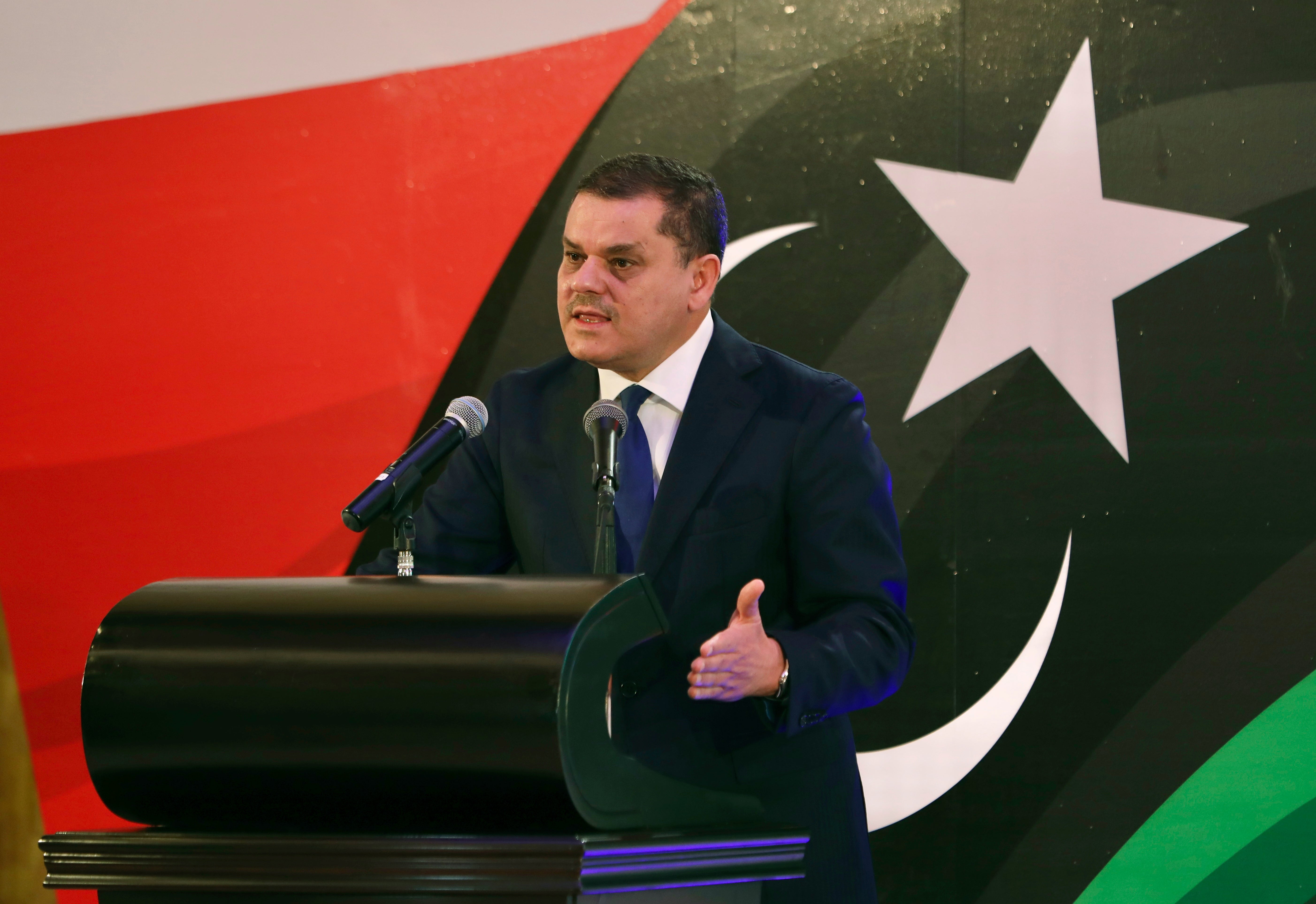Libya: Lawmakers begin consultations on new government
Libyan lawmakers have begun consultations aimed at confirming a newly appointed government that would lead the war-wrecked country through elections late this year

Your support helps us to tell the story
From reproductive rights to climate change to Big Tech, The Independent is on the ground when the story is developing. Whether it's investigating the financials of Elon Musk's pro-Trump PAC or producing our latest documentary, 'The A Word', which shines a light on the American women fighting for reproductive rights, we know how important it is to parse out the facts from the messaging.
At such a critical moment in US history, we need reporters on the ground. Your donation allows us to keep sending journalists to speak to both sides of the story.
The Independent is trusted by Americans across the entire political spectrum. And unlike many other quality news outlets, we choose not to lock Americans out of our reporting and analysis with paywalls. We believe quality journalism should be available to everyone, paid for by those who can afford it.
Your support makes all the difference.Libyan lawmakers began consultations Monday aimed at confirming a newly appointed government that would lead the war-wrecked country through elections by the end of the year.
More than 130 members of the House of Representatives met in the coastal city of Sirte after Prime Minister-designate Abdul Hamid Dbeibah last week presented his proposed Cabinet to Speaker Aguila Saleh.
“We are looking forward to overcome many obstacles” to achieve parliamentary and presidential elections on Dec. 24, Saleh told lawmakers in his opening remarks.
Dbeibah, a powerful businessman from the western city of Misrata, was appointed last month to lead the executive branch of an interim government that also includes a three-member Presidential Council chaired by Mohammad Younes Menfi, a Libyan diplomat from the country’s east.
“The crisis today is a crisis of conflict and war, a crisis of confidence and participation, a crisis of acceptance and support that requires realism and comprehension,” Dbeibah told lawmakers ahead of the meeting.
Dbeibah’s proposed Cabinet includes 33 ministers and two deputy prime ministers who he said are representative of Libya’s different geographic areas and social segments.
“These are critical times and we are taking into consideration that the Cabinet must genuinely achieve national unity and seek consensus and reconciliation,” he said.
Dbeibah said if parliament fails to confirm his Cabinet, it would hamper the political roadmap and prolong Libya’s years-long crisis.
The parliament has till March 24 to confirm the newly appointed government, which would replace two rival administrations, one in the east and one in the west, with each backed by an array of militias and foreign governments.
The interim government has been facing allegations of corruption at meetings of a U.N.-picked 75-member political dialogue forum.
Dbeibah earlier this month refuted the allegations and called for the U.N. to reveal the conclusions of its investigations.
Jalel Harchaoui, a Libyan expert at the Clingendael Netherlands Institute of International Relations, said the debate over the corruption allegations was “highly political” and aimed at weakening Dabaiba by placing doubt on his legitimacy.
“This revived debate over the corruption allegations, although not proven, is hurting precisely this: his legitimacy. It may also delay the entire process and create a fog of confusion that persists for months," he said.
Sirte, once a stronghold for the Islamic State group, has been controlled by forces of military commander Khalifa Hifter since they seized it from the U.N.-supported government last year during Hifter's failed campaign to take control of the capital, Tripoli.
Libya descended into chaos following the 2011 uprising that ousted and killed longtime dictator Moammar Gadhafi.
_________
Associated Press writer Samy Magdy in Cairo contributed.